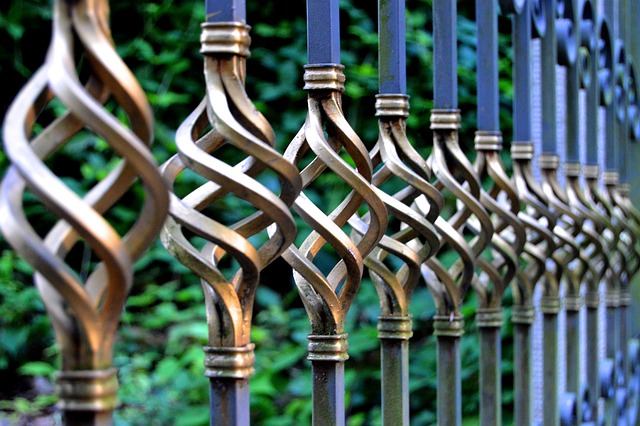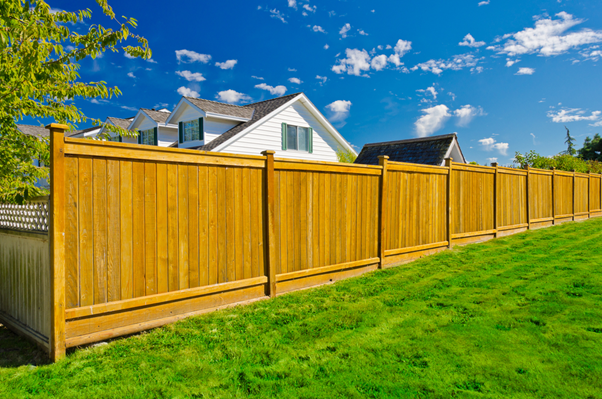All Categories
Featured

When mounting a fence, picking the right product is crucial to balancing functionality, looks, and spending plan. Wood, vinyl, and light weight aluminum are amongst one of the most commonly chosen fencing products, each with its strengths and disadvantages. This overview checks out the benefits and drawbacks of these choices to assist you make a notified decision.

Timber Fence. Pros:. All-natural Elegance: Timber's timeless appeal can enhance any residential or commercial property with its traditional and warm appearance. Customizable: You can paint, stain, or sculpt timber to fit your style preferences. Cost effective: Timber secure fencing is at first much more budget-friendly contrasted to some various other products. Ecologically Friendly: As a renewable resource, timber is biodegradable and usually thought about environment-friendly. Cons:. Maintenance-Intensive: Routine securing, paint, or discoloration is required to stop damages from weather and bugs. Prone to Decay: Without proper care, wood can rot, warp, or fracture gradually. Much shorter Lifespan: Typically, wood fencings last 10-15 years, relying on the kind of wood and upkeep. Wood is a wonderful choice for those that value aesthetic appeals and want to purchase routine upkeep to preserve its look and toughness.
Plastic Secure Fencing. Pros:. Reduced Upkeep: Plastic requires very little treatment-- simply periodic cleaning with soap and water. Climate Resistant: It doesn't warp, rot, or catch insect damage, making it very durable in different climates. Long life: Vinyl fencings can last 20-30 years with little to no repairs. Design Variety: Available in a vast range of shades, designs, and textures, including wood-like appearances. Cons:. Higher Preliminary Expense: Vinyl fences are a lot more expensive ahead of time compared to timber. Susceptability to Cold: In extremely cold weather condition, vinyl can come to be fragile and prone to cracking. Minimal Repair Service Options: Matching replacement panels can be challenging if damages takes place. Plastic fence is perfect for house owners seeking a lasting, low-maintenance service that provides modern-day convenience.

Aluminum Fence. Pros:. Rust-Proof: Light weight aluminum stands up to deterioration, making it an outstanding option for moist or wet settings. Resilient: Regardless of being light-weight, light weight aluminum is strong and can endure rough climate condition. Reduced Maintenance: It needs very little maintenance, commonly just periodic cleaning. Long Lifespan: Light weight aluminum fences can last years without significant damage. Sophisticated Style: Typically utilized for decorative purposes, light weight aluminum fence includes a sleek, innovative appearance to homes. Cons:. High First Investment: Light weight aluminum fences are among the pricier alternatives on the market. Less Privacy: The open layouts common with light weight aluminum fencing don't give much personal privacy. At risk to Damage: While sturdy, aluminum can damage if hit with sufficient force. Light weight aluminum is a superb selection for property owners focusing on aesthetics and sturdiness without calling for much upkeep.
Making Your Decision. When determining in between plastic, wood, or light weight aluminum secure fencing, consider your concerns:
Timber matches those that value an all-natural look and do not mind placing in maintenance effort. Plastic is the most effective option for those seeking a low-maintenance, weather-resistant service. Light weight aluminum supplies sleek style and durable resilience but might lack privacy. By very carefully analyzing these materials' features, you can pick a fencing that enhances your residential property while fulfilling your practical and aesthetic requirements.
Latest Posts
Discover Exclusive Auto Repair Specials in Chicago at Montclare Auto Repair
Published May 29, 25
1 min read
Take Advantage of Special Auto Repair Offers in Chicago at Montclare Auto Repair
Published May 25, 25
1 min read
Find Outstanding Car Repair Services at Montclare Auto Repair – Drive with Confidence
Published May 24, 25
1 min read
More
Latest Posts
Discover Exclusive Auto Repair Specials in Chicago at Montclare Auto Repair
Published May 29, 25
1 min read
Take Advantage of Special Auto Repair Offers in Chicago at Montclare Auto Repair
Published May 25, 25
1 min read
Find Outstanding Car Repair Services at Montclare Auto Repair – Drive with Confidence
Published May 24, 25
1 min read